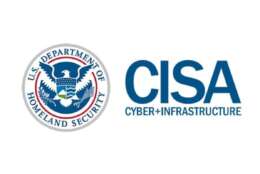Cybersecurity
-
The Space Hour spoke with Bill Harrod, Public Sector CTO for Ivanti.
May 09, 2023 -
It's fair to say, federal agencies will never buy commercial cloud computing services from Chinese vendors.
May 09, 2023 -
The White House seeks to narrow the growing chasm between the immense power companies like Microsoft, Amazon, Google and Oracle wield over the country’s digital fortunes and the few tools the government has to ensure their cybersecurity practices keep more than their pocketbooks in mind.
May 09, 2023 -
The self-attestation form is where the rubber meets the road in the government's push to have its software vendors follow secure development practices.
May 04, 2023 -
While federal agencies search endlessly to hire people skilled in cybersecurity, local government might have a different way. How about enlisting volunteers to help protect critical infrastructure from cyber attacks. That's the idea behind a detailed set of recommendations from the law firm McDermott Will & Emery.
May 04, 2023 -
The government is grappling with the mechanics of addressing whether their software supply chain is secure. Download our new ebook to get a snapshot from leaders at CISA, the IT Industry Council and DoD’s National Counterintelligence and Security Center into current efforts.
May 04, 2023 -
The recently released National Cybersecurity Strategy will make lasting changes in our approach to cybersecurity and establishing resilience for the federal government as well as within critical infrastructure.
May 03, 2023 -
Transportation is taking a measured approach to ensuring new infrastructure projects feature cybersecurity requirements, or at the very least, cyber guidelines.
May 02, 2023 -
Richard Beutel, senior researcher at the George Mason Center for Government Contracting and founder of Cyrrus Analytics LLC, a leading cloud policy boutique, explains why the White House’s new cyber strategy threatens the use of commercial-off-the-shelf IT projects across the government.
May 02, 2023 -
Federal agencies and our nation’s critical infrastructure – such as energy, transportation systems, communications and financial services — are dependent on technology systems to carry out fundamental operations and to process, maintain and report vital information.
May 01, 2023 -
The 2023 National Cybersecurity Strategy is a momentous document that will have a lasting influence on the global digital ecosystem. One aspect of the strategy’s intent is to “reimagine cyberspace” as a tool to improve trust in the United States’ democratic institutions.
April 28, 2023 -
No one can predict when disaster will occur. But organizations, whether government or private, can control how well they respond. It is all about risk mitigation and resilience.
April 28, 2023 -
CISA has hired about 80 people through the "cyber talent management system," while FEMA is also about to start using CTMS.
April 28, 2023 -
22 of the 37 items on GAO’s list of vulnerable federal programs and broad government challenges stem from issues of mission-critical skills gaps in the federal workforce.
April 26, 2023 -
CBP is already moving forward with an effort to embed AI algorithms in screening technology, while CISA's director has raised concerns about the "weaponization" of tech.
April 26, 2023















